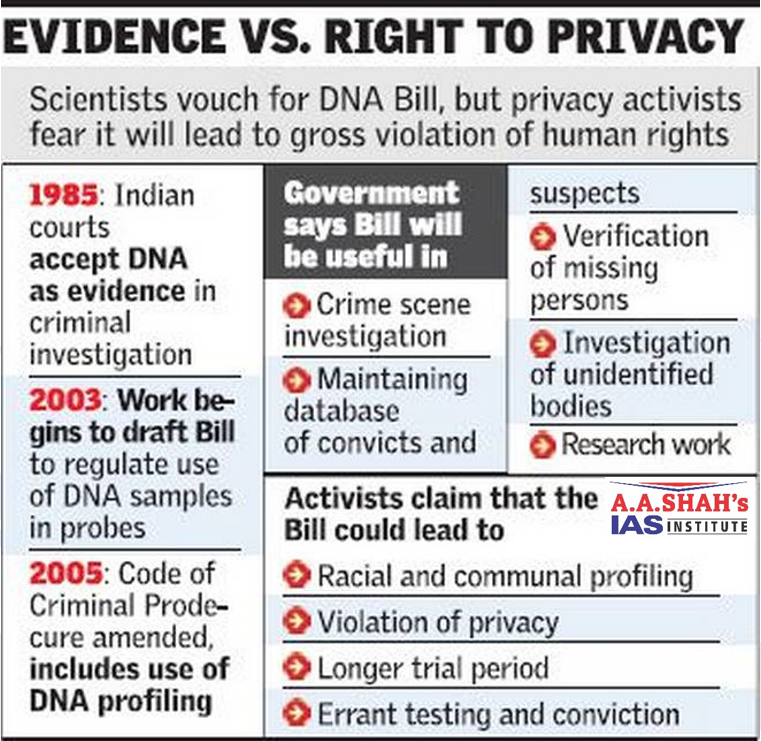What do SC guidelines say on DNA?
POLITY – JUDICIARY
15 SEPTEMBER 2025
Why did the Supreme Court intervene?
- In Kattavellai @ Devakar v. State of Tamil Nadu, the SC found serious lapses in handling DNA samples:
- Unexplained delays in sending samples to the Forensic Science Laboratory (FSL).
- Breaks in chain of custody, raising chances of contamination.
- Existing guidelines lacked uniformity across States, so SC stepped in to create a standard procedure.
New SC Guidelines on DNA (2025)
- Collection & Documentation
- DNA samples must be collected with due care, properly packaged, and labeled with FIR details, officer info, and case particulars.
- A document with signatures of the doctor, investigating officer, and independent witnesses must confirm collection.
- Transport & Timeliness
- Investigating officer must transport samples to the FSL within 48 hours.
- Any delay must be recorded, and samples must be preserved properly.
- Storage & Handling
- Samples cannot be opened, altered, or resealed without trial court authorisation.
- Chain of Custody Register
- A detailed register must be maintained from collection to final judgment.
- It must be part of the trial court record, and the investigating officer is responsible for explaining lapses.
Importance of DNA Evidence
- DNA can be extracted from blood, bone, semen, saliva, hair, skin, etc.
- A match suggests common biological origin, but DNA is not substantive evidence.
- It is treated as opinion evidence under Section 45 of the Evidence Act / Section 39 of the Bharatiya Sakshya Adhiniyam, 2023.
- Its probative value depends on collection, preservation, and reliability of expert analysis.
- DNA evidence is powerful but not conclusive. It must be collected, preserved, and analyzed strictly as per procedure, and cannot alone be the sole basis for conviction.
DNA Bill withdrawn by government in 2023
- The government withdrew the DNA Technology (Use & Application) Regulation Bill, 2019 from the Lok Sabha on 25 July 2023.
- The reason given was that many of the provisions in this Bill had already been covered by the Criminal Procedure (Identification) Act, 2022.
- Members of Parliament, civil society, and legal experts raised concerns about privacy, potential misuse, data protection, and lack of adequate safeguards
